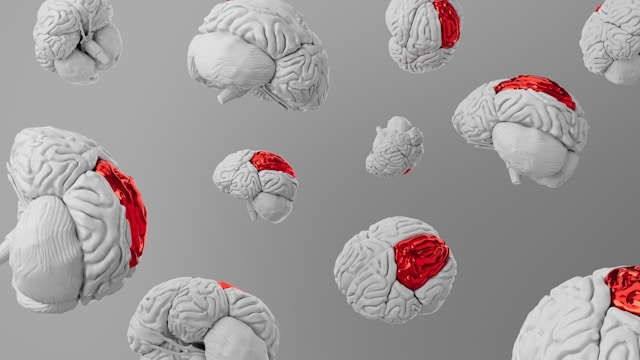Food choices have a profound impact on brain health. The brain, like any other organ in the body, requires a steady supply of nutrients to function optimally. What you eat affects cognitive function, memory, mood, and even the risk of developing neurodegenerative diseases such as Alzheimer’s or Parkinson’s. Here are several keyways in which food choices can influence brain health:
1. Impact on Brain Structure and Function
The brain needs specific nutrients to build and maintain its structure. Foods rich in essential fats, antioxidants, and vitamins play a key role in supporting the brain’s integrity and function.
- Healthy Fats: The brain is about 60% fat, and consuming healthy fats is crucial for brain function. Omega-3 fatty acids, in particular, are important for brain development and cognitive function. Foods like fatty fish (salmon, sardines, mackerel), flaxseeds, chia seeds, and walnuts provide omega-3s, which help maintain cell membranes and support neurotransmitter function.
- Antioxidants: Foods rich in antioxidants, such as berries, dark leafy greens, and dark chocolate, protect brain cells from oxidative stress. Oxidative stress can damage brain cells and is linked to aging and neurodegenerative diseases like Alzheimer’s. Antioxidants neutralize free radicals, protecting brain cells and supporting cognitive function.
- Proteins and Amino Acids: Amino acids, the building blocks of protein, are necessary for producing neurotransmitters (such as dopamine and serotonin) that regulate mood, focus, and energy levels. Foods like eggs, lean meats, legumes, and soy are rich in protein, supporting neurotransmitter production and mental clarity.
2. Inflammation and Brain Health
Chronic inflammation in the body has been linked to cognitive decline and neurological disorders. Diet plays a significant role in modulating inflammation.
- Pro-Inflammatory Foods: Foods high in refined sugars, trans fats, and processed carbohydrates can increase inflammation in the body and brain. This inflammation can lead to neuroinflammation, which is associated with conditions like depression, anxiety, and neurodegenerative diseases.
- Anti-Inflammatory Foods: Foods such as fatty fish, olive oil, nuts, seeds, and leafy greens contain anti-inflammatory properties that protect brain cells from damage and reduce the risk of cognitive decline. The Mediterranean diet, rich in these foods, has been associated with better brain health and a lower risk of Alzheimer’s and dementia.
3. Blood Sugar Regulation
Maintaining stable blood sugar levels is essential for cognitive function, focus, and mood regulation.
- High-Glycemic Foods: Foods that cause rapid spikes in blood sugar, such as sugary snacks, refined carbohydrates (white bread, pasta), and processed foods, can lead to “brain fog,” irritability, and fatigue. Frequent blood sugar spikes and crashes can also increase the risk of insulin resistance, which is linked to cognitive decline and diseases like Alzheimer’s, sometimes referred to as “Type 3 diabetes.”
- Low-Glycemic Foods: Complex carbohydrates, such as whole grains, legumes, and vegetables, provide a slow and steady release of glucose, the brain’s primary energy source. These foods help maintain stable energy levels and support sustained cognitive function.
4. Gut-Brain Connection
The gut and brain are closely connected through the gut-brain axis. A healthy gut can positively influence brain health, while an unhealthy gut can contribute to cognitive issues.
- Gut Microbiome: The gut microbiome, the trillions of bacteria and other microorganisms living in your digestive system, plays a crucial role in brain health. An imbalanced microbiome can lead to inflammation and the production of harmful metabolites that affect brain function. Fermented foods (like yogurt, kimchi, sauerkraut, and kefir) and high-fiber foods (like fruits, vegetables, and whole grains) promote a healthy gut microbiome, which supports mood regulation and cognitive function.
- Probiotics and Prebiotics: Consuming probiotics (beneficial bacteria) and prebiotics (fiber that feeds good bacteria) helps maintain a healthy gut microbiome, which has been shown to impact mental health, reduce anxiety, and improve memory and focus.
5. Cognitive Performance and Focus
Certain foods can boost cognitive performance, memory, and concentration.
- Caffeine: Found in coffee, tea, and dark chocolate, caffeine is a natural stimulant that can enhance alertness and cognitive function in the short term by increasing the release of neurotransmitters like dopamine and norepinephrine.
- Flavonoids: Foods rich in flavonoids, such as dark chocolate, green tea, and citrus fruits, are known to improve memory and cognitive function by promoting blood flow to the brain and reducing oxidative stress.
- Nutrients for Memory: Vitamins and minerals such as B vitamins (B6, B12, folate), vitamin D, magnesium, and zinc are essential for memory and cognitive function. A deficiency in these nutrients can lead to impaired memory, brain fog, and even cognitive decline.
6. Long-Term Brain Health and Neuroprotection
Over time, certain diets can either protect against or increase the risk of cognitive decline and neurodegenerative diseases.
- Mediterranean and DASH Diets: Both the Mediterranean and DASH (Dietary Approaches to Stop Hypertension) diets are rich in fruits, vegetables, whole grains, healthy fats, and lean proteins. These diets have been associated with a reduced risk of cognitive decline and Alzheimer’s disease. The MIND diet, a combination of the Mediterranean and DASH diets, specifically emphasizes foods that promote brain health, like leafy greens, berries, and nuts.
- Ketogenic Diet: A ketogenic diet, which is high in healthy fats and low in carbohydrates, has shown promise in improving cognitive function and slowing neurodegenerative diseases. The brain can use ketones, produced from fats, as an alternative energy source when glucose levels are low, which may improve mental clarity and focus.
7. Hydration and Brain Function
- Water: The brain is highly sensitive to dehydration. Even mild dehydration can impair memory, concentration, and mood. Drinking enough water is essential for maintaining cognitive function and preventing headaches, fatigue, and difficulty focusing.
Summary of Key Foods for Brain Health:
- Beneficial: Fatty fish (omega-3s), leafy greens, berries (antioxidants), nuts and seeds, olive oil, whole grains, fermented foods (probiotics), dark chocolate, green tea.
- To Limit: Sugary snacks, refined carbohydrates, trans fats, processed foods, alcohol in excess.
In conclusion, food choices play a vital role in brain health, influencing everything from cognitive function and mood to long-term risk for neurological diseases. A diet rich in whole, nutrient-dense foods that support brain health can lead to better mental clarity, sharper focus, and a lower risk of cognitive decline.





